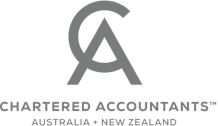SMSF Tax Planning 2020
COVID-19 Temporary Minimum Pensions
Government has reduced the minimum annual payment required by 50%:
Age | Normal Minimum % withdrawal | Reduced rates for |
Under 65 | 4% | 2% |
65-74 | 5% | 2.5% |
75-79 | 6% | 3% |
80-84 | 7% | 3.5% |
85-89 | 9% | 4.5% |
90-94 | 11% | 5.5% |
95 or more | 14% | 7% |
Minimum Pension Amounts
If you are a member of a self-managed super fund (SMSF) and have a pension in place during the financial year, ensure that the minimum pension that you are required to receive has been drawn out of super fund prior to 30 June.
Allow time for Electronic Funds Transfers that need to clear the bank.
The consequences of failing to meet your minimum pension obligations before 30 June would be loss of tax exemption status for the pension account and any pension payments received during the year will be treated as super lump sums for both income tax and SIS Regulation purposes.
Contribution Deductions
We suggest that any super contributions you plan to claim a tax deduction for are made by 25 June each year and a Notice of Intent to Claim Form is completed. Note that internet transfers of contributions are not considered paid until they reach the super fund’s bank account and if left too late may trigger the following year cap limits inadvertently.
Concessional Contribution Caps (Tax Deductible)
Age of member | 2019 FY Cap | 2020 FY Cap | 2021 FY Cap |
Under 65 | $25,000 | $25,000 | $25,000 |
Over 65 (subject to eligibility) | $25,000 | $25,000 | $25,000 |
Carry-forward mode (See below) | N/A | Available | Available |
From 1 July 2018, members can make ‘carry-forward’ concessional super contributions if they have a total superannuation balance of less than $500,000.
Members can access their unused concessional contributions caps on a rolling basis for five years. Amounts carried forward that have not been used after five years will expire.
The first year in which you can access unused concessional contributions is the 2019–20 financial year.
If you exceed the concessional contributions cap, any excess concessional contributions will be included in your assessable income and taxed at your marginal tax rate less 15% tax offset (and subject to interest charge).
Non-Concessional Contribution Caps (No Tax Deduction)
Type | Member’s Total Super Balance @ 30 June | Amount of Cap |
Standard | <$1.6M >$1.6M | $100,000 Nil |
Bring-Forward rule | < $1.4M $1.4M to < $1.5M $1.5M to < $1.6M >$1.6M | $300,000 over 3 years $200,000 over 2 years $100,00 Nil |
Review superannuation strategy
Trustees are required to ‘regularly review’ the fund’s investment strategy. We recommend that trustees review the strategy at least annually or when the circumstances of the fund change and document this review.
Insurance
SMSF trustees need to consider the need for insurance cover for the fund members when formulating and reviewing the fund’s investment strategy.
Where a SMSF has entered into a borrowing arrangement to acquire an asset, trustees should consider the need for any insurance cover inside the fund to assist in meeting the on-going obligations of the debt repayments. The fund’s ability to meet the on-going debt repayments can be severely jeopardised where one member of the fund dies, as the fund may have needed to utilise contributions that were being made for that member to meet the repayments. Such a scenario could result in the fund having to sell the property.
Additional Super Contributions Tax (Division 293)
Individuals with income exceeding $250,000 are liable to an additional 15% contributions tax (i.e. bringing the total rate to 30%) on concessional contributions. You should take this into consideration when making superannuation contributions prior to year-end.
Investment Restrictions
Review the financial year investment purchases to ensure your SMSF has not intentionally acquired assets from members or a “related party” unless a listed security, business real property or as a minor in “in-house asset” investment. If there was an accident made, ensure you contact us to assist in rectifying before year end for audit management purposes.
Loans or Funds Borrowed
Review the financial year banking transactions to ensure your SMSF has not lent funds or provided any other financial assistance to a member or a member’s relative. If there was an accident made, ensure you contact us to assist in rectifying before year end for audit management purposes.








